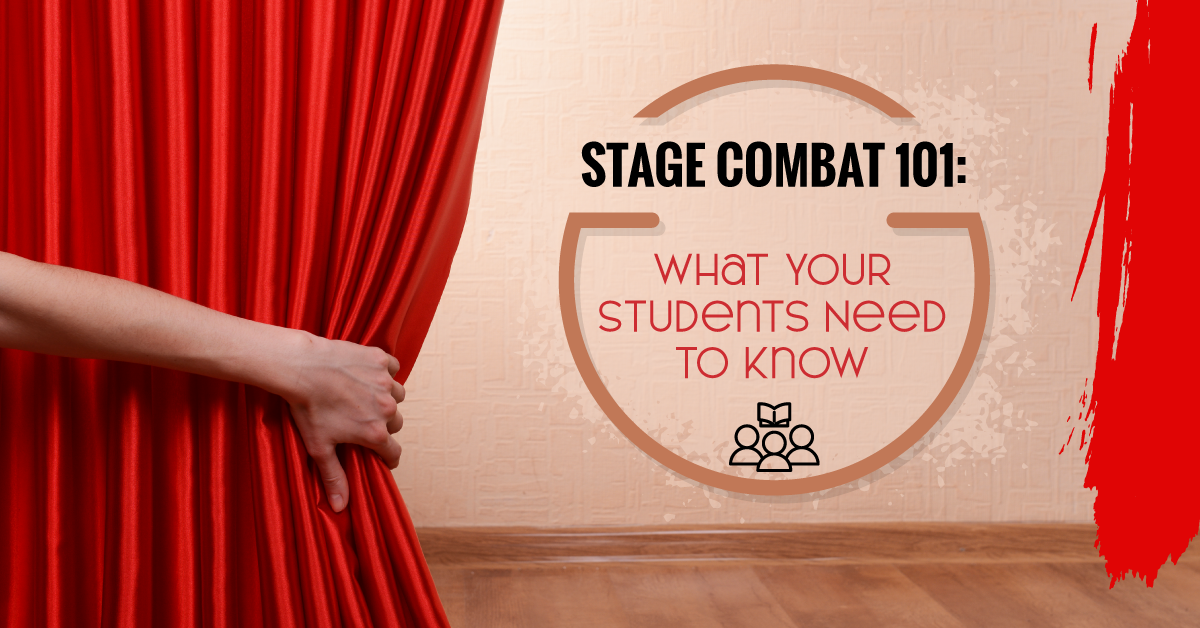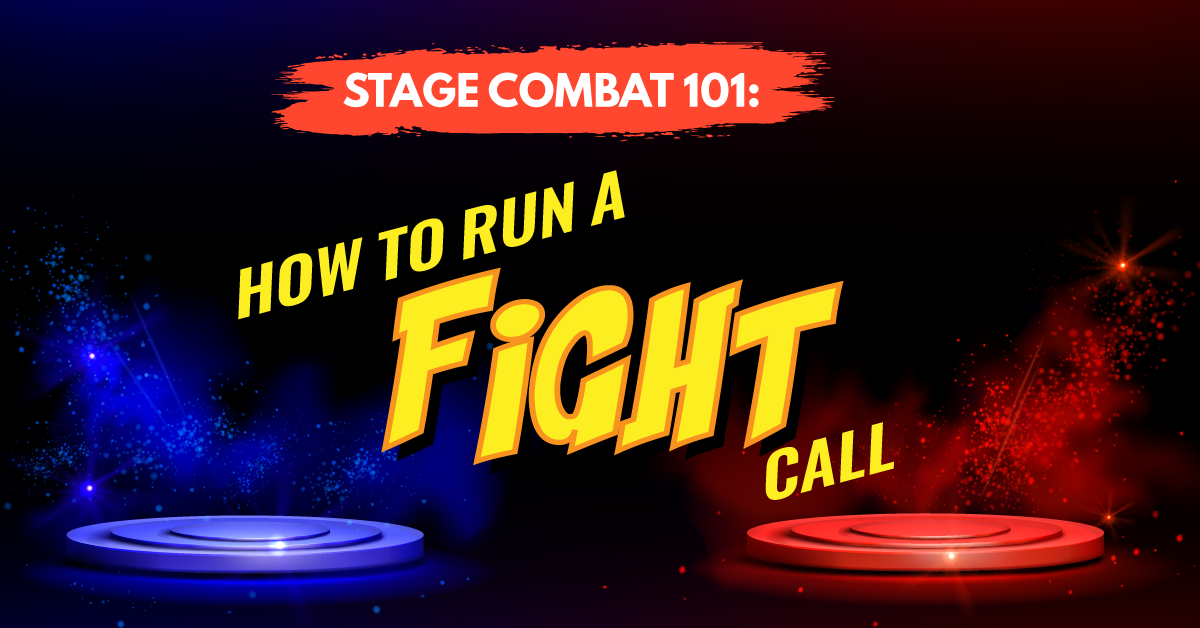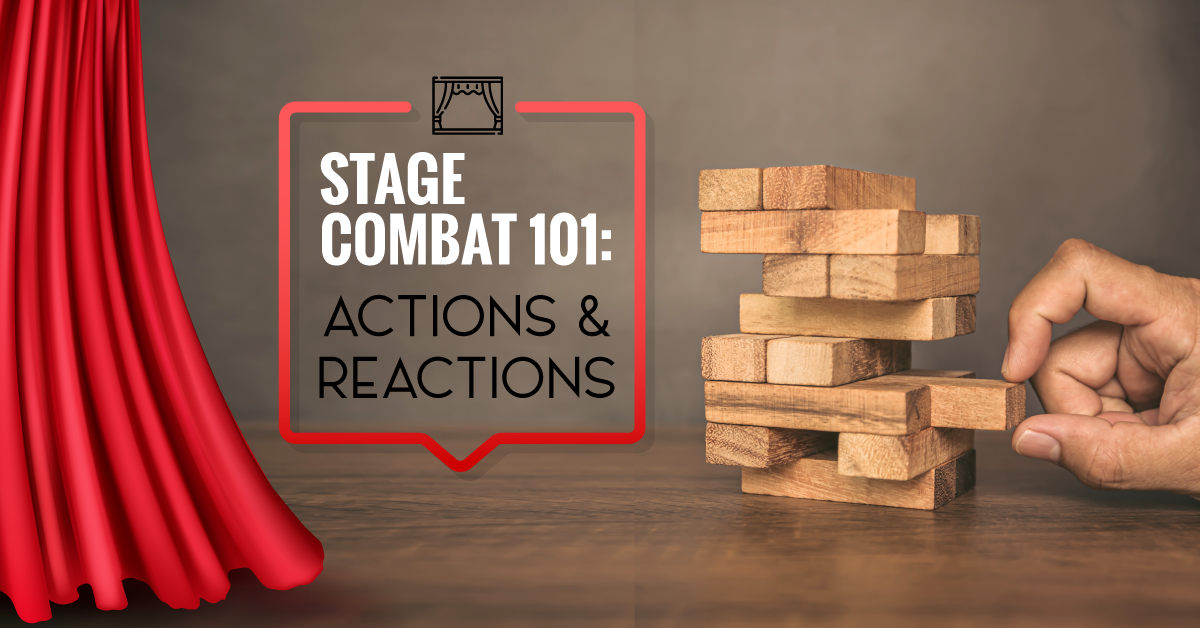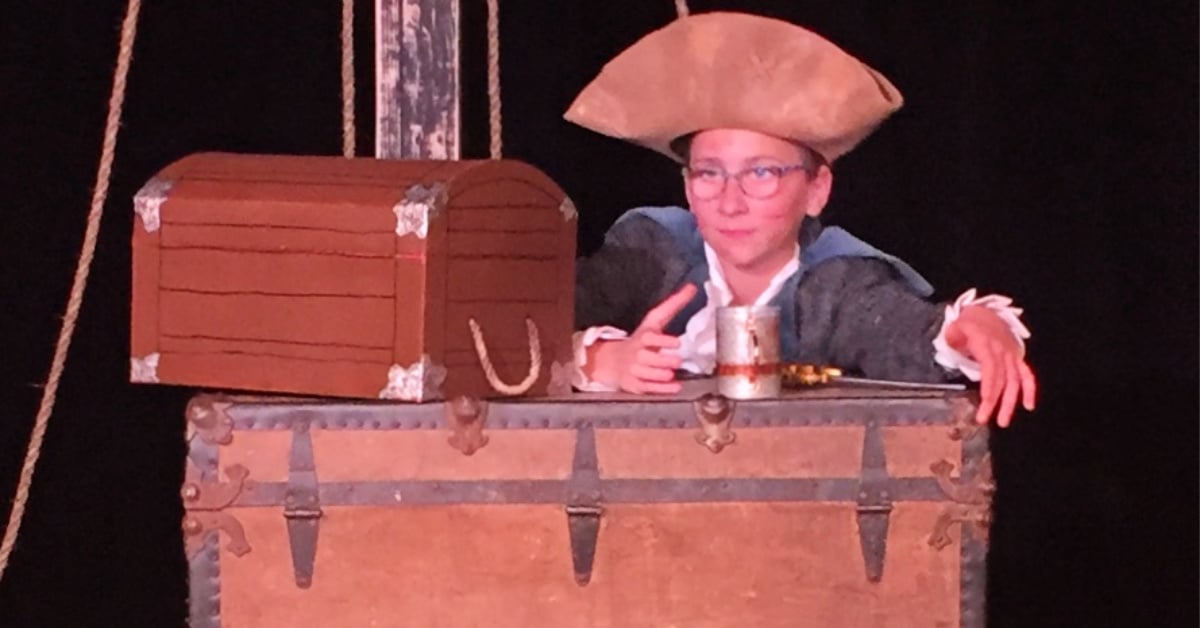Agatha Rex by Lindsay Price is a bold high school take on Antigone - packed with heart, conflict, and a powerhouse ensemble. One girl. One stand. One huge risk. *NEW COMPETITION VERSION AVAILABLE!*
Stage Combat 101: What Your Students Need to Know
This month, we are diving into the world of stage combat. If you dream of directing an action-packed show like The Three Musketeers, Robin Hood, or Treasure Island, then you’ll have to deal with stage combat with your students. But stage combat is more than just swordfights and gunslinging. There are tons of plays and musicals that include many different types of stage combat: punches, slaps, hair pulls, slow-motion fights, knife fights, found weapon fights, trips, slips, falls, lifts, and more. Wait — falls and lifts count as stage combat too? Definitely!
The mere mention of stage combat can evoke many feelings in student performers: excitement, nervousness, silliness, or even fear. If you plan on running a stage combat workshop with your students, or if you’re doing shows with even the briefest moments of stage combat, you need to ensure that your student performers are feeling confident as well as physically and mentally safe at all times. Here are some things that your students need to know before starting stage combat work:
1. Students need to know the responsibilities that go with doing stage combat.
We go into this in detail in our article Stage Combat 101: Before You Even Begin. Be sure to check out the giveaway, which has a great printable tip sheet for students. The highlights include:
- The first rule of stage combat is safety first, safety last, and safety always.
- Stage combat must always be performed exactly as it is choreographed every time. Never improvise stage combat.
- Stage weapons can be broken or damaged or cause bodily injury with improper handling. Always treat stage weapons with care and respect.
- If a student is caught goofing around during stage combat instructions or with a stage weapon, they will face consequences (such as being removed from the fight entirely).
In short, students must display respect, care, maturity, and trustworthiness in order to be permitted to participate in stage combat. If a teacher, director, or fight director does not feel that a student has displayed the traits necessary to do stage combat, the student will not be cast in a role that involves stage combat or allowed to participate in stage combat workshops.
2. Students need to be informed.
In your audition notices, be sure to include if a role involves stage combat, and what kind of combat (unarmed, knife, sword, etc.) will be performed. Have copies of the script available ahead of time so students can read through it and see exactly what the role entails, such as whether the character is the aggressor or the victim, and how many fights are involved. This way students can make informed choices about whether they feel physically capable and mentally comfortable auditioning for a role that requires stage combat.
Note: This is also a useful technique for any roles that involve romance or sensitive subject matter such as death.
It’s also a good idea to give students advance notice if you are planning on doing a stage combat workshop or unit in class. Not only will they be able to prepare in advance so they are dressed properly (sneakers, workout clothes, long hair tied back, etc.), they can make an informed decision on whether they feel comfortable participating.
3. Students need to know they can advocate for themselves.
If a director or fight director asks a student to do something that the student knows they cannot physically do or that feels unsafe, the student is allowed to speak up and let the director/fight director know (either publicly or privately, depending on the student’s choice). Let’s say your director wants a student to fall to their knees on the stage, and the student has a prior knee injury. The student can certainly ask to not do the move, or to do an alternate move, or request to wear a pair of knee pads. In short, if something feels unsafe, don’t do it!
Students do not need to explain the reason or disclose past history or trauma when requesting to not do a move that they feel is unsafe. A good fight director will find a substitute move or workaround. Be aware that a student may feel comfortable while auditioning or during the early rehearsal process, and then discover in the moment that a particular move or sequence is uncomfortable for them. We encourage teachers and fight directors to be flexible and understanding if these situations arise.



